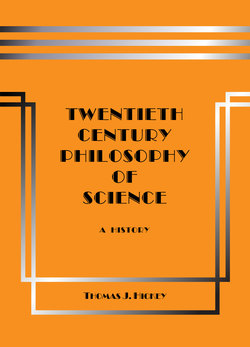Читать книгу Twentieth-Century Philosophy of Science: A History (Third Edition) - Thomas J. Hickey - Страница 114
На сайте Литреса книга снята с продажи.
Mach’s History of Mechanics
ОглавлениеMach’s most popular work was his Science of Mechanics: A Critical and Historical Account of Its Development (1883) also known as The History of Mechanics. This book went through nine editions both in German and in English, seven of which were published in Mach’s lifetime. The physicists whose works Mach examined were not phenomenalists, and he set out to write a critical history of mechanics from the perspective of his own phenomenalist philosophy of science. As he stated in the introduction to the first edition, the book’s purpose is to clarify ideas, reveal the real significance of the matter, and to purge physics of its metaphysics. For Mach this agenda amounted to purging physics of theory. With this aim in mind he critiqued the contributors of the past as he salvaged and reconstructed what he found in their works to be of lasting value. Even the achievements of the great Isaac Newton did not escape his phenomenalist criticism unscathed. Mach criticized Newton’s principle of reaction, his concept of mass, and his concepts of absolute space and absolute time. Starting from his own view that all phenomena are related, Mach concluded contrary to Newton that all masses, all velocities, and all forces are relative, a thesis known as Mach’s phenomenalistic relativity. And he proposes his own set of definitions and empirical propositions to replace Newton’s. The outcome of this criticism was to have a large impact on the histories of both philosophy of science and physics.
